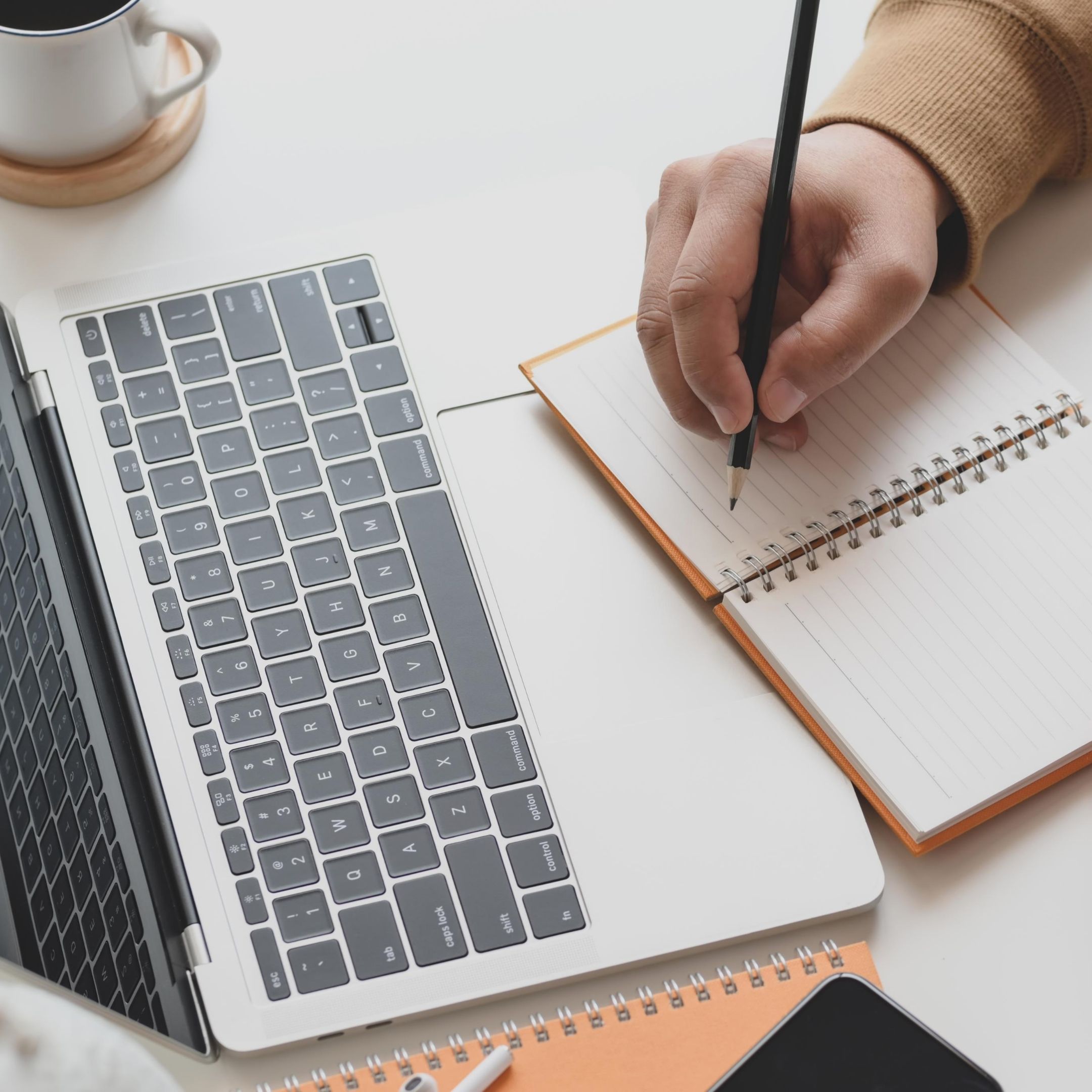As the 2020 RPA internship program concludes, we spoke with the interns about their experience, lessons learned, and advice for future RPA interns.
Q: What projects did you work on during your internship?
A: At the start of the internship, we were assigned our first major project. We had to pitch an idea of a product, design a prototype, test the design, analyze the data, and present our findings. To make the project realistic, we were given a budget and had to divide the labor, giving each member of the team a specific role. The idea we came up with was to create an attachment for a wheelchair that was able to generate electricity through movement and could power a battery supply. Shortly after the first project was assigned, we were presented with a conceptual project called facility of the future. We were supposed to come up with a building design that represented the ideas society was moving toward. Because we were all college students, we decided to create a student center that focused on sustainability and adaptability while providing a useful space for students with different needs.
Q: What type of experience do you need for this internship program?
A: The experience required for this internship will depend on which department you’re working in. If you’re working with the mechanical engineers, it might be helpful to have some introductory fluid mechanics, solid mechanics, and statics courses under your belt. If you’re working with the controls group, a class or two in controls engineering or electrical engineering systems might be a good idea. Additionally, it helps to have some experience with 3D modeling software and Excel.
In general, you’ll be introduced to many new concepts, technologies, and software no matter which department you’re working in. The engineering staff is incredibly knowledgeable and helpful, and they are more than happy to teach you the ropes. The specifics of which modeling software you need experience with and which classes are “required” for this internship are irrelevant as long as you come willing to learn.
Q: What is the schedule for the internship program?
A: Usually, the program starts in mid-to-late May when all of the interns have finished their spring semesters. However, due to the COVID-19 pandemic, the start date this year was a little later than is customary, and we started on June 1st. Each intern sets their own end date and leaves when they are about to go back to school. This year, we all had different last days, but we all finished working sometime in August. Additionally, we were allowed to take time off for vacation at any point in the internship as long as we gave advance notice.
On a weekly basis, the internship program is Mondays through Thursdays, and it is 8 hours each of those days. Since we started the internship working from home (due to governmental regulations during COVID-19), our hours were flexible at the start of the internship. When we were in the office, our work days began at 8:30 am.
Q: What does a typical day in the internship program look like?
A: While no day at RPA is exactly the same as the last, there are similarities between the days of work during the week. During the week there were group projects and individual projects each intern worked on. We would arrive at around the same time so we were able to collaborate. We then started to complete our individual assignments or do some quick group activities. A few times a week we would meet with our supervisors to keep them up to date with our progress and see if there were any new assignments. Our group talked about all of the tasks that needed to be accomplished before we worked on the decided task for the day. We usually ended up switching between a few different projects to add variety to our schedule. When the day was done we talked about the things we needed to do for the next day and if there was anything that needed to be done later. We then cleaned up our area and called it a day.
Q: How is the internship program tailored to each person’s interests and career path?
A: Each of us had a different set of interests and career goals. For this reason, the internship was somewhat different for each of the interns. First of all, we were individually placed into the division of the company that best suits our fields, including the mechanical, controls, and CQV (commissioning, qualification, and validation) divisions. As a part of a division, we each sat in on group meetings and had the opportunity to talk to employees with experience working in our future career fields.
Additionally, each intern was assigned a mentor based on their area of study. This mentor checked in on their mentee regularly, guided them through the internship, and helped them develop and accomplish their goals for the summer. The mentors also tried to find projects for their mentees.
On top of those assignments, interns were given assignments or asked to sit in on calls that fit their interests. For example, the intern who studies aerospace engineering was asked to sit in on a meeting with Gulfstream Aerospace. Interns were also brought on-site to visit clients that do work in their fields. All of these details helped create a personalized experience for each intern.
Q: What were your favorite aspects of the internship?
A: Some of our favorite aspects of the internship included meeting and interacting with various current and potential clients of RPA. We got to see some of the initial action taken to secure new contracts and develop understandings of ongoing projects. Additionally, we enjoyed working in a group setting where ideas were shared and developed. Another aspect that some of the interns enjoyed was learning how to read various drawings and diagrams as well as how RPA logged them by either scanning or putting information into an Excel sheet. While time and face to face interactions were limited due to the pandemic, the interns all appreciated the ability to come to the office and interact with RPA and its clients while following Governor Wolf’s orders. Meeting with Rick (Vice President of Business Development), gave us an understanding of the business side of engineering, and when he gave us an introduction to the stock market, we found the experience enlightening.
Q: What was it like to work at RPA during a global pandemic?
A: Many rules and regulations were put in place, by the government and by RPA, to help prevent the spread of COVID-19. This vastly changed the structure of the internship as well as the interaction between employees. For starters, the internship program was pushed back a few weeks and was also strictly online for a month. We would meet virtually, Monday – Thursday at 11:30 am as well as participating in staff meetings. Eventually, we decided to have an intern meeting at around 10:45 am to share ideas and work collaboratively as much as possible. We also met virtually with our mentors. Once it was deemed safe to return to the office, we were given a list of rules to follow. When entering the building for the first time each day, we were required to conduct self-temperature checks as well as fill out a questionnaire. Inside the building, masks were to be worn unless you were in your personal office space and social distancing was to be practiced as much as possible. The kitchen and certain entrances to the building were put off limits. Despite the obstacles that COVID-19 brought, we did as much as we could with what time and capabilities we had.
Q: What is the company culture like?
A: RPA prides itself on being a modern engineering firm built on a tradition of excellence, yet adventurous in its search for new ideas. As far as day-to-day work goes, the engineering staff generally kept busy. This does not mean, however, that they do not make time to talk to each other and the interns. The building is fairly open-concept and allows for daily group meetings and quick collaborations with other employees. RPA has regular outings and events that stimulate a fun and engaging atmosphere among employees, though COVID-19 negatively affected this aspect of the company during our internship year.
Q: What advice do you have for future interns?
A: This internship can be as positive as you make it. Though you may face obstacles during your time at RPA, having a positive attitude and learning from the experience will prove to be beneficial to you and your career path. RPA offers a wide variety of services to their clients meaning there are opportunities for you to expand your knowledge. Making yourself available, having the will to learn, and asking questions will ultimately contribute to making your internship successful. Talk to the engineering staff, get involved with your intern project, and seek out work from the employees, and you will get real engineering experience to take with you back to school and into your future careers.
Q: What did you learn from this internship?
A: One of the most important aspects we learned about during the internship was how a consulting firm is run. We got to witness RPA employees interacting with current and potential clients through in person and virtual meetings. Additionally, we got to experience working in the business world and participating in teamwork, design, and implementation of ideas. While working in teams, we learned how to divide labor and participate in positive conversations where ideas were shared and discussed.
Throughout the internship, we also learned about engineering-specific topics. For example, as we designed our university student center (an assigned group project) and our wheelchair attachment, we learned how to use various 3D modeling software, including Revit, Inventor, and SketchUp. In addition, we were taught about programmable logic controllers (or PLCs) and the ladder logic software that is used to program them.
Also, we each chose a topic related to technology and wrote a blog post about that topic. This assignment provided us an opportunity to do an in-depth look into a subject of interest to us. Our topics were 3D printing, 5G, regenerative medicine, virtual reality, and XQ-58 Valkyrie.
A note from all of us at RPA: We’d like to thank our 2020 interns for their time spent with us. Abby, Barrett, Jason, Sebastian, and Vince, although this year was anything but typical, you were able to adapt and thrive, all while remaining enthusiastic and professional! We wish you every success in your future endeavors!



